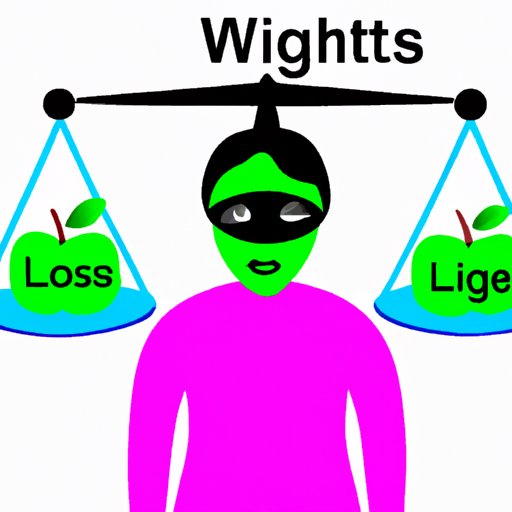
Why Is It Hard to Lose Weight: Understanding the Challenges
Weight loss is a common challenge for many people, yet it remains a daunting goal for several reasons. Losing weight requires a significant lifestyle change, which takes time and effort. However, despite a person’s best efforts, many struggle to lose weight. In this article, we explore some of the biological, psychological, social, and personal factors that make weight loss difficult and provide strategies to overcome them.
The Biology of Weight Loss: Why Our Bodies Resist Losing Weight
Several biological factors make weight loss difficult. These factors can be both intrinsic and extrinsic, often making it hard to lose weight.
Slow Metabolism
A slow metabolism can make it hard to lose weight. Metabolism refers to the rate at which the body burns calories. Individuals with a slow metabolism burn fewer calories than those with a high metabolism, making it harder to create the calorie deficit required for weight loss.
Hormonal Imbalances
Hormonal imbalances can contribute to weight gain and make it hard to lose weight. Hormones like insulin, cortisol, and leptin play a significant role in regulating appetite, metabolism, and fat storage. An imbalance in these hormones can lead to weight gain and metabolic disorders.
Genetic Predisposition
Genetics plays a crucial role in weight gain and weight loss. Some individuals may be genetically predisposed to weight gain, making it harder for them to lose weight even with a healthy lifestyle.
Psychological Reasons Why Weight Loss Is Hard
Several psychological factors can make weight loss hard.
Habits That Keep People from Losing Weight
Many habits contribute to weight gain, such as emotional eating, mindless snacking, and overeating. These habits are challenging to break and may cause a person to struggle with weight loss.
Coping Mechanisms for Stress and Negative Emotions
Stress and negative emotions can lead to emotional eating, which can contribute to weight gain. When we’re under stress, we tend to reach for food as a coping mechanism.
Lifestyle Factors
Lifestyle factors, such as lack of planning and poor time management, can make it hard to maintain a healthy lifestyle. For example, lack of planning can cause a person to skip meals or opt for unhealthy fast-food options.
Social Factors That Make Weight Loss Difficult
Several social factors can make weight loss difficult.
Sedentary Lifestyles
Sedentary lifestyles are a significant contributor to weight gain. An inactive lifestyle makes it hard to create the calorie deficit required for weight loss.
Availability of High-Calorie Foods
High-calorie foods are widely available, and it can be hard to resist temptation, especially when dining out with friends or family.
Unrealistic Beauty Standards
Unrealistic beauty standards set by society can lead to a negative body image, making it hard to follow a healthy lifestyle and achieve weight loss goals.
The Impact of Personal Choices on Weight Loss
Personal choices play a significant role in achieving weight loss goals.
Eating Habits
Eating habits, such as consuming processed and high-calorie foods, can make it hard to lose weight. On the other hand, healthy food choices can help create a calorie deficit and promote weight loss.
Exercise Habits
A sedentary lifestyle can make it hard to lose weight. Incorporating exercise into your daily routine can help improve metabolism and promote weight loss.
Stress Management
Stress can lead to emotional eating, which can contribute to weight gain. Finding healthy ways to manage stress, like meditation, exercise, or therapy, can help with weight loss.
Sleep Habits
Poor sleep habits have been linked to weight gain. Getting enough restful sleep can help with weight loss and improve overall health.

Strategies to Overcome Common Weight Loss Challenges
Overcoming weight loss challenges requires a significant lifestyle change. Here are some strategies that can help:
Developing Healthy Habits
Creating healthy habits, such as meal planning, regular exercise, and stress management, can significantly improve weight loss progress.
Creating a Supportive Environment
Creating a supportive environment can help achieve weight loss goals. Surrounding oneself with supportive friends and family can help create accountability and provide motivation.
Addressing Emotional Eating
Addressing emotional eating is crucial for weight loss success. Recognizing triggers and finding healthy coping mechanisms can help avoid emotional eating.
Finding Motivation
Finding motivation can help achieve weight loss goals. Setting realistic goals and tracking progress can provide motivation and help stay committed to weight loss.
Conclusion
Weight loss is a challenging goal, but it’s achievable with commitment and effort. Understanding biological, psychological, social, and personal factors that contribute to weight gain and implementing strategies to overcome them are crucial steps to lose weight successfully. By making healthy habits a part of our daily lives, we can achieve our weight loss goals and improve our overall health and well-being.





